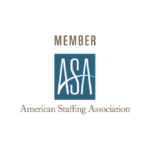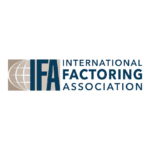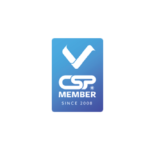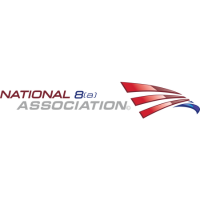
Healthcare Staffing Factoring: Which Options are Right for You?
By: Craig Cohen, Director of Sales
Craig is an experienced risk manager with the entrepreneurial spirit and leadership skills that support Encore client success.
Is healthcare staffing factoring worth it? In my opinion, yes! Access to reliable financing is essential for survival and growth. Without adequate cash flow, you can’t meet payroll obligations, take on new clients, or weather unexpected market changes, stunting your ability to scale.
Below, I share the pros and cons of three primary financing options available to healthcare staffing entrepreneurs: traditional bank loans, merchant cash advances (MCAs), and payroll funding.
The Unique Financial Challenges of Healthcare Staffing
I’ve seen the distinct financial hurdles in running a healthcare staffing agency that can challenge even the most experienced entrepreneurs. You likely face delayed client payments, compliance-related expenses, and high payroll costs. These costs must be met usually every two weeks without fail, while your clients — hospitals, long-term care facilities, and labs — often operate on 45- to 60-day payment cycles. Your receivables are not keeping up with payables, creating a cash flow crunch when you need to meet payroll.
Add compliance-related expenses like liability insurance, credentialing software, and continuing education requirements, and it’s clear why your finances require strategic planning. Enter: healthcare staffing factoring.
Traditional Bank Loans – Stability with Strict Qualifications
Traditional bank loans are an obvious financing option for established businesses, but banks will not treat healthcare staffing clients much differently than standard clients.
Healthcare staffing agencies can choose from two types of loans: secured loans that require collateral (often equipment, real estate, or personal assets) and unsecured loans based primarily on credit history and business performance. I believe the points below are the benefits and drawbacks of bank loans.
Pros:
- Lower interest rates
- Structured repayment plans
- Potential for larger loans with significant growth initiatives
Cons:
- Stringent qualification requirements, including strong credit scores (typically 700+), 2+ years in business, and detailed financial documentation
- Slow funding timelines (often 90-120+ days)
- Less leniency toward healthcare debtors and customers who may take longer to pay
- Restrictive, which limits growth potential
- Personal guarantees that put your assets at risk
Bank loans may make sense for healthcare staffing agencies with established track records, consistent revenue streams, and predictable growth trajectories. If your agency needs capital for a specific expansion project, equipment purchase, or office space, and you have time to wait for funding, a traditional bank loan offers stability and cost-effectiveness.
However, if your agency is less than two years old, experiencing rapid growth, or facing temporary cash flow challenges, traditional bank loans may be difficult to secure and potentially too rigid for your needs.
The biggest mistake I’ve seen staffing entrepreneurs make when applying for traditional bank loans is that their lack of financial acumen becomes much more obvious and apparent in a bank setting. Poor cash management and poor personal credit scores are weighted more at banks, which leads to quick rejections. Staffing entrepreneurs may overlook the financial requirements — mainly revenue and profitability — to secure funding from banks.
Merchant Cash Advances (MCAs) – Fast Cash with High Costs
MCAs provide quick capital in exchange for a percentage of your future earnings. Unlike loans, MCAs don’t charge interest in the traditional sense — instead, they apply a factor rate (typically 1.2-1.5) to the amount you borrow, creating a fixed payback amount higher than the initial advance.
Pros:
- Fast access to funds — often within 24 to 48 hours of approval
- Minimal qualification requirements (credit scores as low as 500 may qualify)
- No collateral is required beyond future receivables
- Simple application process with minimal documentation
Cons:
- High APR fees that can range from 40% to over 100% annually
- Daily or weekly repayment schedules that strain cash flow
- Potential debt cycles if multiple advances are needed
Before taking an MCA, I always advise staffing entrepreneurs to keep an eye out for red flags. MCAs can be a dangerous alternative lending product simply because they’re so easily accessible. You can get money in your account in 24-48 hours with little to no documentation, but the rates are egregiously high, and repayments are extremely aggressive. At Encore Funding, we’ve seen staffing entrepreneurs get into a vicious cycle where they must take out subsequent MCA loans to pay their previous ones.
Other red flags are hidden fees. You pay the rate itself but also origination fees, prepayment penalties, or renewal fees. Don’t fall victim to high-pressure sales tactics!
That being said, MCAs might be a viable option when your healthcare staffing agency faces a true emergency — like you need to meet payroll tomorrow and have no other options or you have a time-sensitive opportunity that justifies the cost.
Payroll Funding – The Scalable Solution for Growth
Healthcare staffing factoring, or payroll funding, is designed for the staffing industry. This financing option advances funds against your receivables, providing immediate cash flow based on your completed work rather than future promises.
Pros:
- Improved cash flow alignment, turning 45- to 60-day wait times into same-day funding
- Scalability — the more you bill, the more funding is available
- Fewer credit restrictions than traditional loans because payroll funding focuses on client creditworthiness
- No fixed repayments that strain growth periods
- Good for large payroll obligations
Cons:
- Requires strong invoicing/payroll practices and documentation
- May require minimum monthly volumes to maintain competitive rates
Payroll funding benefits healthcare staffing agencies by directly addressing the industry’s fundamental cash flow challenge: the gap between weekly or bi-weekly payroll obligations and extended client payment terms. Payroll funding converts your largest asset (accounts receivable) into immediate working capital.
Unlike traditional loans or MCAs, payroll funding grows with your business. As you place more healthcare professionals and generate larger invoices, your available funding increases without requiring new applications or credit reviews.
Let’s set the scene: Your agency receives a request to place 15 travel nurses at a hospital system for a 13-week assignment. The contract value is $500,000, but the hospital pays on 60-day terms. Without payroll funding, you’d need $250,000+ on hand just to cover payroll during the payment gap. With payroll funding, you can accept this opportunity, knowing your payroll obligations will be covered while you wait for payment.
As you look for a payroll funding provider, do your research and choose someone who’s truly a partner. They should understand your business inside and out.
With nearly 30 years of experience, Encore understands the nuances of healthcare staffing, from workers’ compensation to payroll taxes and more. These are specific scenarios your average banker may not understand, but we have the expertise to help you overcome challenges and help you grow.
How to Choose the Right Financing Strategy for Your Agency
To find the right financing option, be sure to do your homework. We also recommend checking BBB ratings, Google reviews and other testimonials from real clients.
Finally, don’t forget to consider your goals, client payment terms, cost structure, and the urgency of funding. Where your business falls within these considerations will help determine the right option between traditional banking, MCAs, or healthcare staffing factoring.
Financing should facilitate short- and long-term growth, not temporarily fix fundamental business challenges. If you’re looking for a partner with decades of experience, contact the Encore team for your custom pricing solution.

 216-998-9900
216-998-9900








